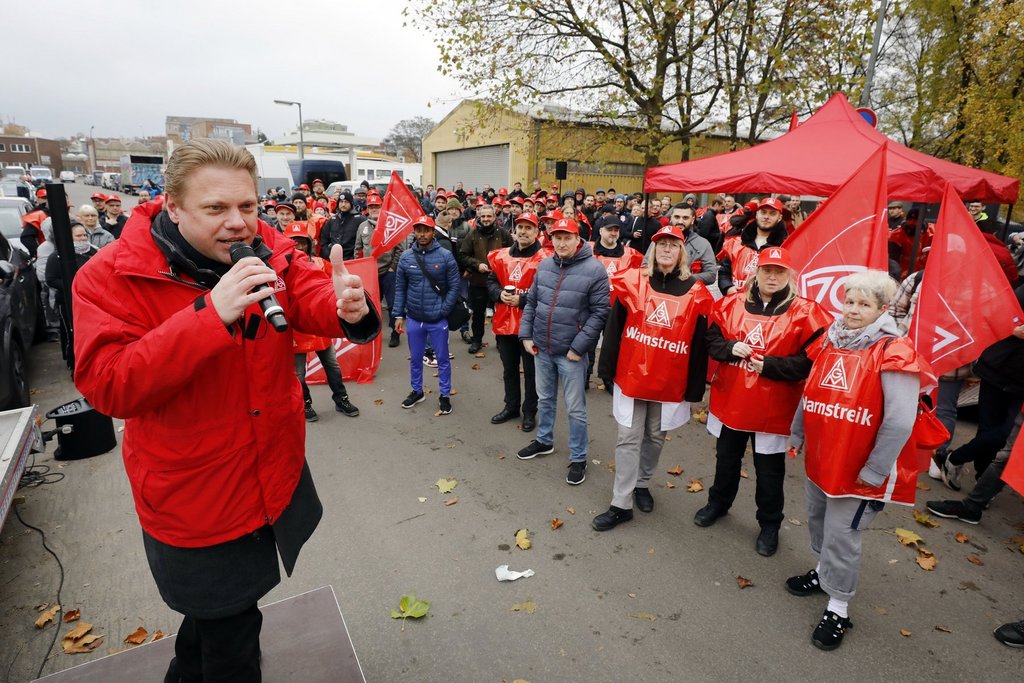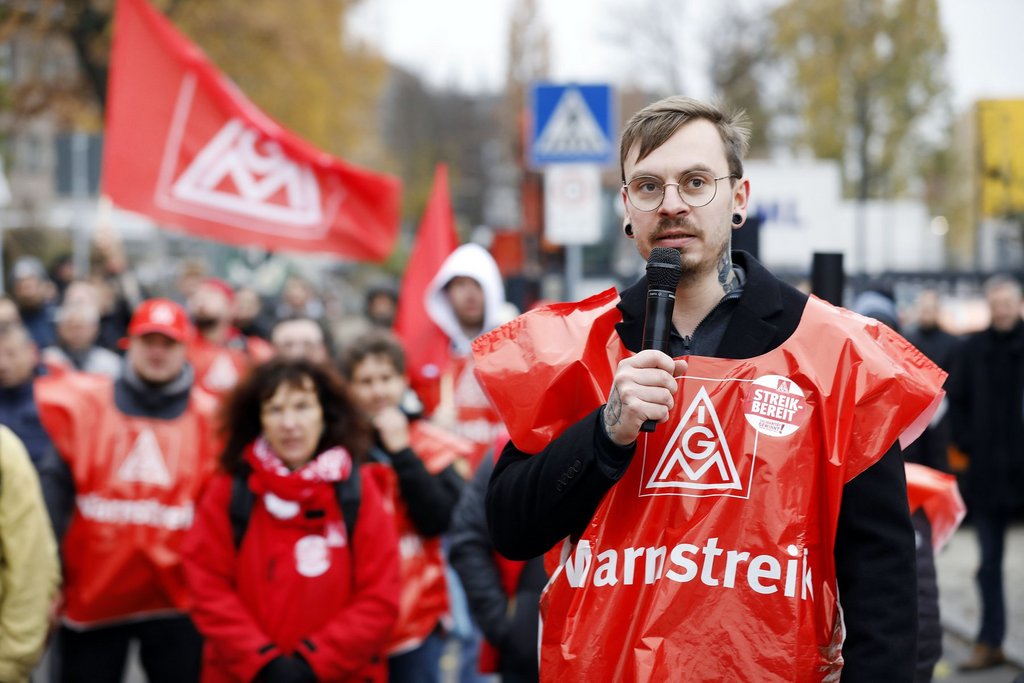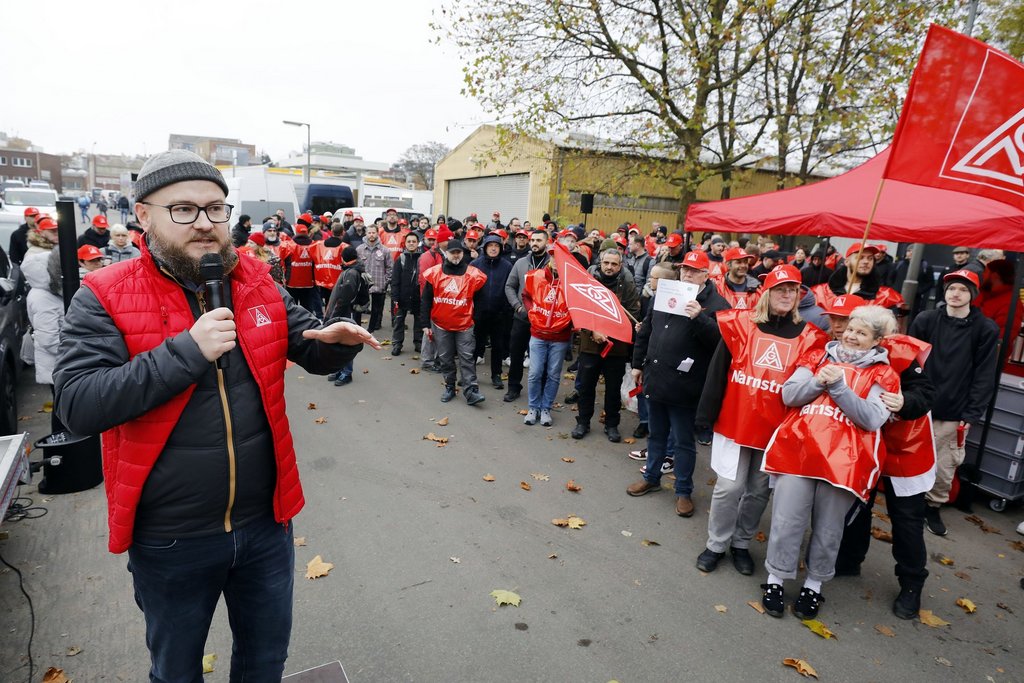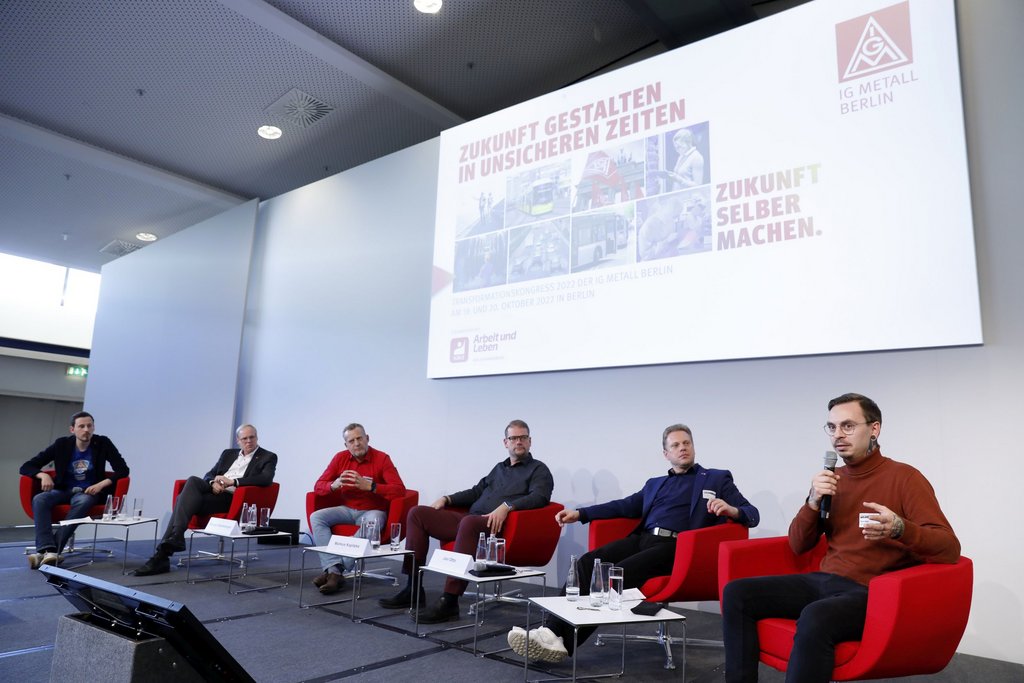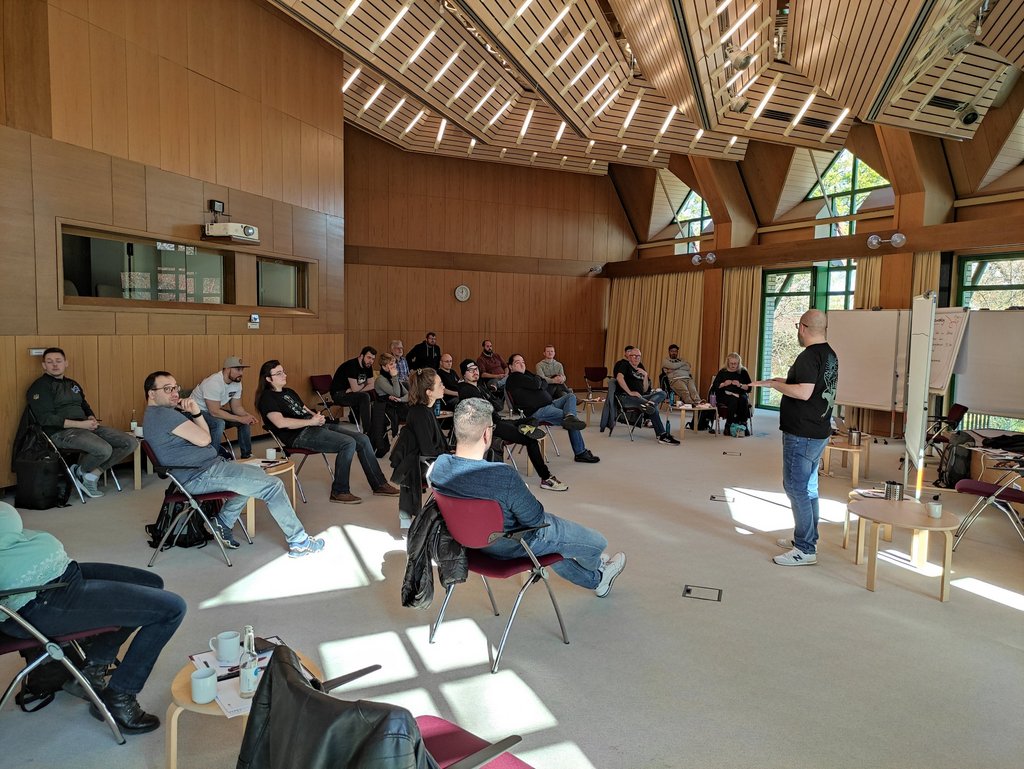Betriebsräte/Vertrauensleute
ASML
"Very good deal". At ASML in Berlin, the new company collective agreement comes into force in July.
28.06.2023 | As of July 1, employees at ASML Berlin will benefit from an in-house collective agreement. A joint press conference of IG Metall and ASML provided information about the agreement.
"With IG Metall, we have the right partner on our side to represent the interests of employees. It's good that the benefits of IG Metall are finally being applied here." Ismail Onat, Chairman of the Works Council at ASML, is pleased with the "very good agreement." ASML Berlin GmbH will receive a new in-house collective agreement. A negotiation result was already reached in March. During the negotiations, which reached a result after only 14 rounds, the negotiating committee had a tailwind. It was supported by an ongoing organizing process in the company, with more and more colleagues joining IG Metall.
Higher pay, lower working hours, more flexibility
The in-house collective agreement reached in this way is something to be proud of: There is a new salary system and a new remuneration structure, and there is also a 13th month's pay - also for trainees. In addition, the 35-hour week will be introduced in stages. "The collective agreement with ASML is a great success for the employees, for the industry and for IG Metall. The collective agreement is in parts above the level of the metal and electrical industry and we assume a constituent effect for the tech industry," said Jan Otto, First Authorized Representative of IG Metall Berlin.
"Working hours are an essential part of the collective agreement. With a phased plan, we are reducing the weekly working time to 35 hours within just two years. This is faster than we have often been able to achieve in other collective agreements. In addition, employees will be able to increase their working hours by mutual agreement, but above all to reduce them again at short notice if necessary. This is flexibility - but in the interests of the employees. They gain time sovereignty," explains Philipp Singer, trade union secretary at IG Metall in Berlin. Neels Wied, deputy chairman of the works council, agrees. They have "finally managed to create modern working conditions. There is fair pay and fair working hours: 35 hours from 2025." This also applies to classic industrial jobs. "This makes ASML competitive and, for example, more attractive for industrial mechanics than comparable companies," Wied continues.
ASML on course for expansion
At a joint press briefing by IG Metall and ASML on Monday, the company also expressed visible pride for the good working conditions it can offer. In view of the growing concern for skilled workers, the in-house collective agreement is also a tangible competitive advantage. Company-specific features were taken into account during the negotiation, Regina Draheim-Krieg, human resources manager and negotiator at ASML in Berlin, said. "We go live on the first of July," she says of the collective agreement coming into force soon.
ASML is an important part of the semiconductor industry. The global company, headquartered in the Netherlands, has nearly 40,000 employees and annual sales of over 20 billion euros. In Berlin, the number of employees is approaching 2000. The modules manufactured here go from here to chip producers all over the world and are installed there. "ASML Berlin is hugely important for the semiconductor industry, this is where the fundamentals of the tech industry are, this is where decisions are made what will happen in future," says Jan Otto. The company builds critical high-precision components for structuring silicon wafers on which computer chips are based. This makes ASML a single source supplier and gives it a virtual monopoly. ASML's technology is essential for the further miniaturization of microchips. The keyword is EUV lithography (extreme ultra violet, EUV), which overcame a technical barrier and enabled the miniaturization trend to continue.
Almost one fifth of the workforce works in research and development. ASML has hired 40 percent of the current workforce in Berlin in the last two years. And that's not the end of the story - management expects to double the size of the plant every five to six years or so.
The new in-house collective agreement supports the further growth of ASML's Berlin, which further increases the attractiveness of the location. Unlike some other manufacturing companies in Berlin, ASML is in a good situation and wants to expand the site. This also determines the situation for IG Metall. "Here we can do what we were founded for, negotiate better working conditions with the employer," says Jan Otto. It is a position of strength from which the interests of the employees here are brought into focus. "The fact that we were able to reach such a good collective agreement here has great charisma beyond Berlin. The agreement even has the potential to have a cross-industry impact on the digital economy," says Jan Otto.

